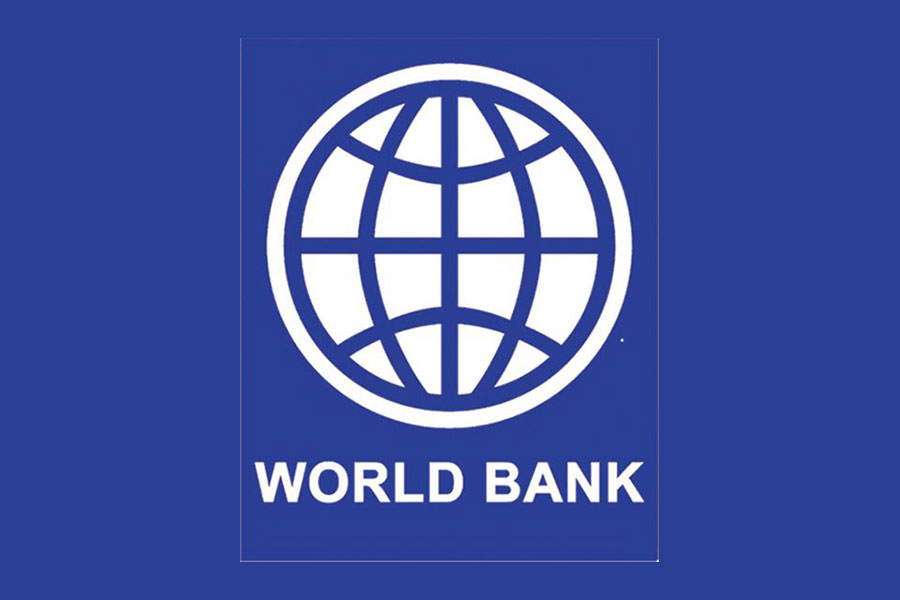
View From Arada | Apr 30,2022
Apr 24 , 2021.
There were no surprises when the National Bank of Ethiopia (NBE) decided two weeks ago to raise commercial banks' minimum paid-up capital requirement. For a few years now, the central bank has been signaling that all private banks in business - 16 of them by the last fiscal year - reach at least two billion Birr in their capitalisation. The latest directive takes this a notch up, raising the threshold to five billion Birr, 10 times the current requirement.
It is a long way coming for an industry that had seen a rebirth in the mid-1990s with a threshold capital requirement of 10 million Br. This allowed the first generation of private banks such as Awash, Abyssinia, United, Dashen and Wegagen to emerge. A paid-up capital increase to 75 million did little to deter the second wave of banks - Bunna, Nib, Zemen, Oromia International and Lion - from joining the industry. Not even half a billion Birr capital threshold was much of a roadblock when more banks were entering the market. Banks such as Debub Global, Enat, Addis, Berhan, CBO, and Abay were the latest in the bloc.
In the face of 17 banks under formation, the latest demand could be an uphill task for several banks. It may merely be a small inconvenience to those who have been in the market for two decades and above. Already, Dashen and Awash are in the clear. Before the directive, the Bank of Abyssinia’s shareholders decided to beef up their capitals up to 10 billion Br. Amhara Bank, which recently held its first general assembly, will be entering the market with a cool six billion Birr in paid-up capital, the first bank to achieve such a monumental feat upon formation.
Rising requirements for paid-up capital, which improves banks’ ability to mobilise deposits for loans and advances, is not the only thing occurring in the financial sector. It is an area of the economy that investors and, more importantly, small-time savers, have their eyes on as inflation bites. A testament to this is their proliferation in number, with around a dozen banks in various stages of formation.
No less interesting is the diversity in the services and products they are offering. Interest-free banking (IFB) has made the biggest splash and is gaining ground in the insurance sector as well. Full-fledged interest-free banks such as ZamZam and Hijra are similarly joining the industry, as are the types specialising in single products such as mortgage and investment consultancy. There is as well a heated competition in electronic banking, with Ethio telecom on the cusp of entering the market.
Combined with establishing a capital market, for which a bill has already reached parliament, these changes are bound to transform the sector nearly beyond recognition.
Similar dynamics take place in monetary policy, where the currency, the Birr, is being moved towards a market-clearing rate. Inflation has stubbornly stayed in the double digits, and the administration is attempting to break free of its habit of having money printed to finance the budget deficit. Instead, it funds it using sales from bonds and treasury bills.
Yinager Dessie (PhD), governor of the central bank, clearly has his job cut out for him. His record over the past three years has been questionable. An International Monetary Fund (IMF) guided programme that sees subsidies cut and the Birr depreciated has meant inflation has been hard to tame from a 20pc year-on-year rise. The consequences to the living standards of households, including in terms of food security, have been worrying.
Added to this will be regulating a banking industry that is evolving rapidly. How hard this is becoming has been evident with the directives it has been compelled to come up with regularly as it attempts to monitor the flow of currencies in and outside of banks. It has recently put restrictive rules to forex retention and has moved to substantially limit the amount of cash individuals and companies can hold outside of banks.
Under such circumstances, an increasingly popular recommendation is separating the responsibilities of the central bank's role in ensuring macroeconomic stability through monetary policy tools from its insurance and banking regulatory duties. Reducing the latter function of the central bank will help it focus more stringently on monetary policies and perhaps even prohibit a conflict of interest in its duty to bolster commercial banks.
At least on the side of addressing conflicting interests between monetary policy and regulation of banks, there will be some merit to such recommendations. While the wellbeing of the financial system is necessary for the economy to be healthy, the reverse does not necessarily follow. As the rather impressive return on earnings per share (EPS) of several banks this year shows, economic hardship is not necessarily reflected in commercial banks' account books. An extreme example is stock market gains in the United States throughout the COVID-19 pandemic - despite a severe dip at the outset, and the economy going into recession afterward, the market recouped its losses in a matter of two months.
In Ethiopia's case, though, the financial system is still not sufficiently complex to make establishing a separate regulatory body that urgent. Not enough decoupling has taken place between the economy and banks and insurance firms for the simple fact that the market remains heavily regulated. Capital controls remain firmly in place. More importantly, there is not nearly the abundance of services and products as well as a regulatory environment that allows any meaningful level of speculation.
A more pragmatic recommendation is to strengthen the monetary policy functions of the central bank. It has been too comfortable policing banks while playing second fiddle to the executive part of the government for far too long. The latter had reduced its monetary policy function to its preferred economic planning instrument, no matter the consequences to macroeconomic stability. It is about time it refocuses its priorities and serves to check on the executive's spending.
For this to occur, it would need to be sufficiently insulated from politics, which crowds out professional and independent monetary policy regulation. Addressing this starts from the top. The central bank’s governors have been deeply embedded within the highest corridors of politics, including serving as politburo members of ruling coalitions.
The same goes for the current governor, who himself is running for a parliamentary seat in the upcoming elections, representing the ruling Prosperity Party (PP). Experience shows this creates a conflict between the political interests of the ruling party and the central bank's duty to maintain price stability. At some point in time, it was not possible to distinguish between the fiscal ambition of Sufian Ahmed and the monetary ease of Teklewold Atnafu. They were the longest-serving finance minister and central bank governor, respectively.
Sufian's appetite for funding projects in parts of the country to buy his party more voters and Teklewold's eagerness to print money that fed inflationary pressure on the rest of the economy was legendary.
The less that such a redline is not strictly adhered to, the harder that the central bank would find it to regulate an ever-expanding number of banks and products while maintaining a monetary policy that anticipates and can respond to an evolving economy.
PUBLISHED ON
Apr 24,2021 [ VOL
22 , NO
1095]

Commentaries | Jul 10,2020

Radar | Aug 11,2024

Radar | Aug 25,2024

Radar | Jun 25,2022

Radar | Nov 30,2019

My Opinion | 131507 Views | Aug 14,2021

My Opinion | 127863 Views | Aug 21,2021

My Opinion | 125841 Views | Sep 10,2021

My Opinion | 123471 Views | Aug 07,2021

Dec 22 , 2024 . By TIZITA SHEWAFERAW
Charged with transforming colossal state-owned enterprises into modern and competitiv...

Aug 18 , 2024 . By AKSAH ITALO
Although predictable Yonas Zerihun's job in the ride-hailing service is not immune to...

Jul 28 , 2024 . By TIZITA SHEWAFERAW
Unhabitual, perhaps too many, Samuel Gebreyohannes, 38, used to occasionally enjoy a couple of beers at breakfast. However, he recently swit...

Jul 13 , 2024 . By AKSAH ITALO
Investors who rely on tractors, trucks, and field vehicles for commuting, transporting commodities, and f...

Jun 29 , 2025
Addis Abeba's first rains have coincided with a sweeping rise in private school tuition, prompting the city's education...

Jun 29 , 2025 . By BEZAWIT HULUAGER
Central Bank Governor Mamo Mihretu claimed a bold reconfiguration of monetary policy...

Jun 29 , 2025 . By BEZAWIT HULUAGER
The federal government is betting on a sweeping overhaul of the driver licensing regi...

Jun 29 , 2025 . By NAHOM AYELE
Gadaa Bank has listed 1.2 million shares on the Ethiopian Securities Exchange (ESX),...